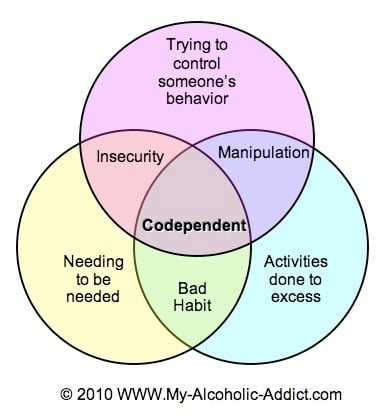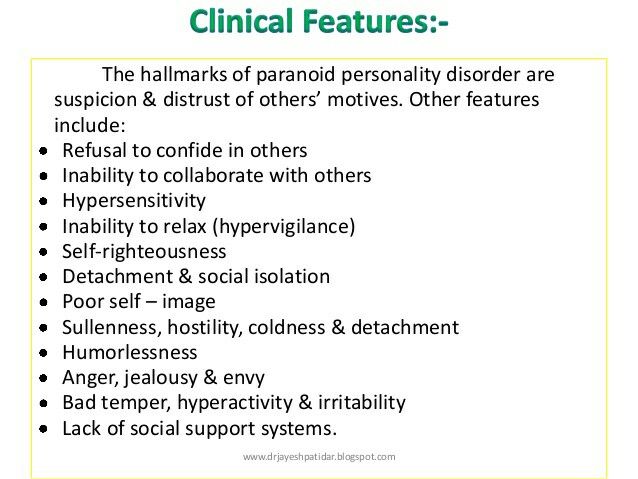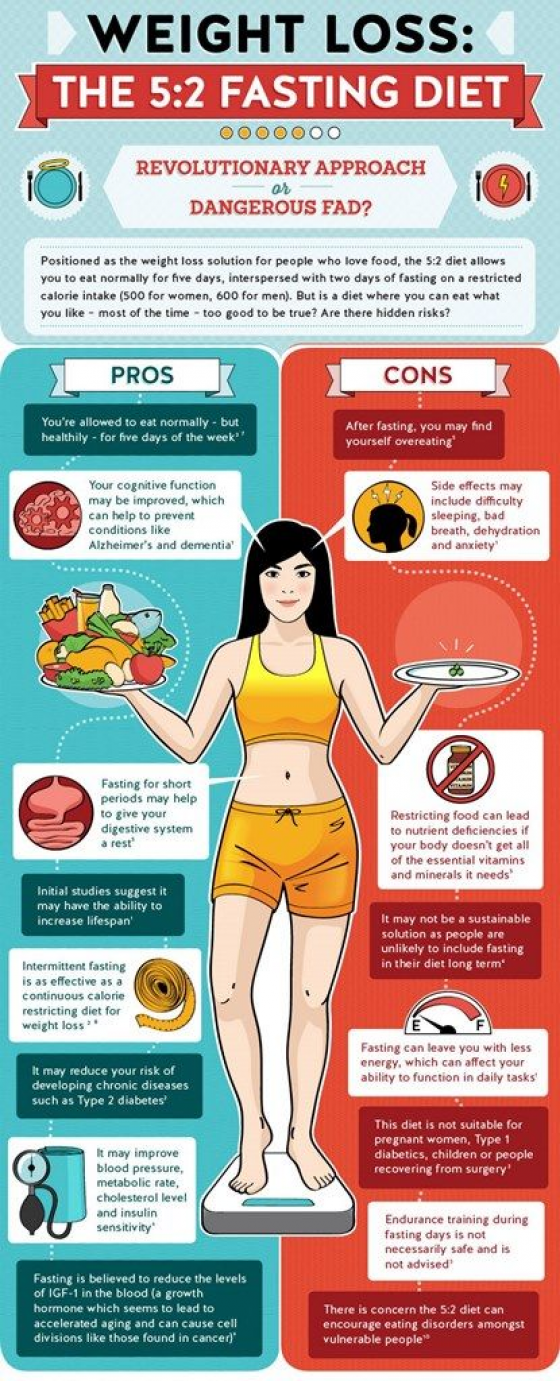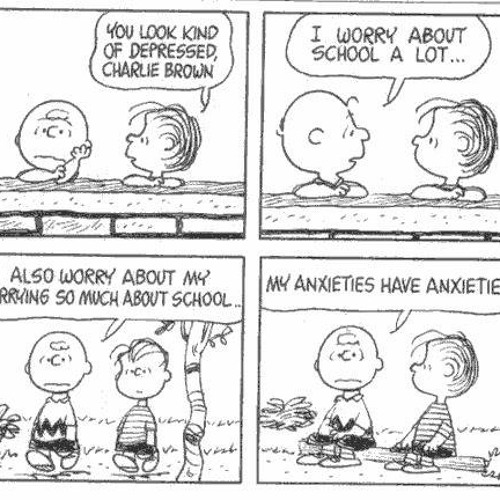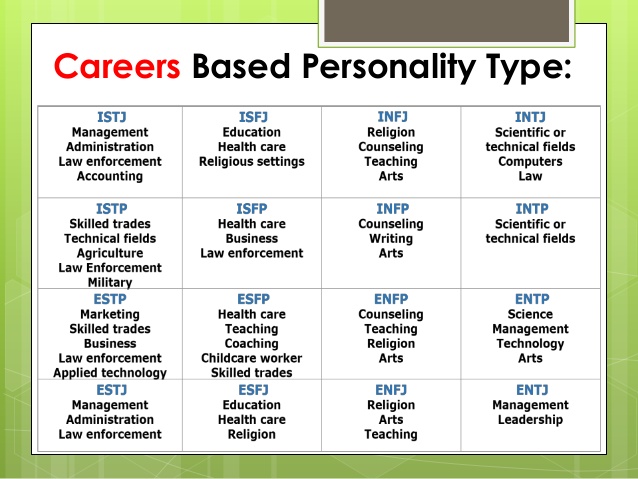Trying to control
Top 6 Tips On How To Stop Trying To Control Everything
In this post, you’re going to learn how to stop trying to control everything and start enjoying your life.
do you struggle with wanting to control everything?
It feels good to know that we’re in control of things in our life.
However, thinking that we can always be in control over everything in our lives can present some issues.
We can’t fit all the circumstances and people in our lives, into the way we think they should be.
On the other hand, once you learn how to let go of the things you can’t control,
You’ll be able to devote more of your time and energy toward the things you can control, and achieve more in life.
Contents
If you’re someone who is trying to keep everything under control, you usually, share some of these signs:
- You spend so much of your time and energy trying to prevent something from happening, or wishing other people would change.
- You believe that the outcome of every situation is solely based on how much effort you make.
- You struggle to delegate tasks or trust other people because you don’t think they’ll do it right. You also struggle with teamwork.
- You don’t feel comfortable asking for help.
Related: Top 70 Detachment Quotes To Help You Let Go
Why Do I Need To Control Everything?1. Managing anxietyPeople try to control everything in an attempt to better manage their anxiety.
They believe that if they have everything under control, then there will be nothing to worry about. Instead of working on managing their anxiety, they try to control their environment.
2. Not being able to trust others’ capabilitiesAnother reason why people try to control everything, is because they don’t trust other people’s capability.
Instead of delegating tasks, they prefer to do it themselves to make sure it’ll be done right.
They also struggle to ask for help because of their lack of trust in others and their inability to give away control.
Related: Best 9 Tips On How To Receive More In Life And Relationships?
3. Our Belief systemWe decide what’s within our control and what’s not, depending on our belief system.
Psychologists refer to this as the locus of control. People with an external locus of control believe that their lives depend highly on external circumstances like fate and luck.
On the other hand, people with an internal locus of control believe that their lives depend on how much effort they make.
They take full responsibility for their successes and failures in life and they believe they have the ability to control everything in their life, from controlling their finances to controlling their health.
For example,
Someone who attends a job interview and who gets rejected, despite possessing the right qualification and experience for the position, if he has an external locus of control, he would think to himself that maybe someone else who’s overqualified applied for the job or that the interviewer didn’t like him.
On the other hand, if he has an internal locus of control, he’ll think to himself that maybe he didn’t do a good job impressing the interviewer, or that he should’ve redone his résumé.
How locus of control developsHaving an external or an internal locus of control depends largely on your experiences in life, whether it was from your childhood or adulthood. If you noticed that hard work pays off, you’re likely to have an internal locus of control.
However, if you concluded that no matter how hard you work, things just don’t turn right, you may develop an external locus of control.
While an internal locus of control has often been idealized as the best belief system, there can be potential downsides to believing that you can control everything.
Related: Negative Core Beliefs List (& 8 Tips On How To Challenge Them)
The Problem With Controlling BehaviorTrying to control everything presents several issues including:
1- It leads to increased anxietyIt’s impossible to be in control of everything or to maintain that control.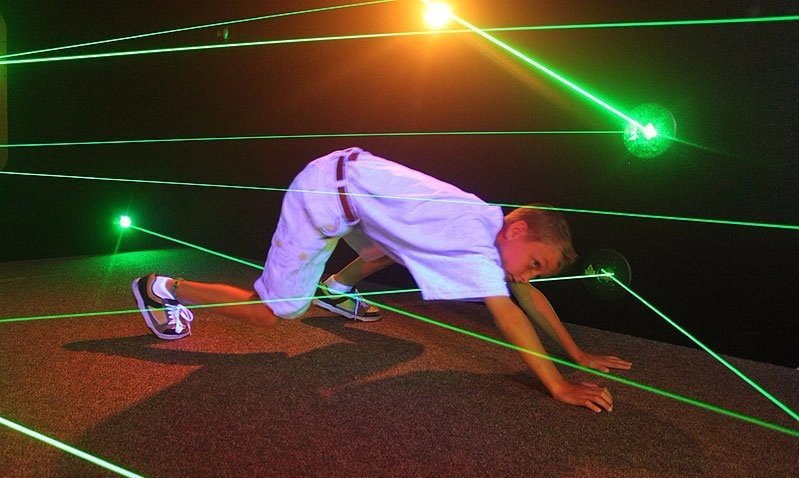
You’re bound to fail at times, and the more unsuccessful attempts to control the situation you make, the more anxious you’ll become.
2- It wastes your time and energyIt takes so much of your time and energy to worry about things outside of your control, or to wish circumstances were different, or to try to convince people they needed to change or do it the other way.
3- It damages relationshipsTelling people what they should do or how to do things isn’t exactly an attractive trait.
It’s likely going to repel people away from you.
4- You end up blaming yourself for everythingIf you think that everything is within your control, you’ll believe that you’re responsible for everything that doesn’t go according to your plans.
And blaming yourself for everything that happens isn’t exactly healthy for you.
Related: Get Out of Your Own Pity Party: How to Stop Pitying Yourself?
How To Stop Trying To Control Everything?#1. Develop A Balanced Sense Of Control
Develop A Balanced Sense Of ControlTo achieve a balanced sense of control in your life, you need to first, take notice of your control beliefs.
Examine the times when you’ve given people and circumstances you can’t control too much of your energy and time.
Then, remind yourself that there’s a lot you can’t control:
- You can take someone out, but you can’t control whether she/he has fun.
- You can take your child to the best school, but you can’t control how good his/her grades are going to be.
- You can do your best at work, but you can’t make your boss recognize your work.
- You can take so much care of yourself, but you can’t prevent illness.
- …
Related: Overcome Suffering In Your Own Way: 4 Keys To Relieve Suffering
#2. Identify Your FearsWhen you find yourself devoting so much of your time and energy toward controlling someone or a situation, ask yourself what are you so afraid of?
Are you worried that things might go wrong?
Or that the person might make a bad choice?
Acknowledging your fears will help you understand them better, and change your belief about what you can control and what you can’t control.
Related: Dealing With Avoidance: How to Calculate Risks And Overcome Fear In Life?
Pro Tip: Choose your support system wisely. Consider online therapy and choose from thousands of licensed therapists and mental health counselors. Connect wherever and whenever it’s convenient for you by phone, texts, or video sessions. Check out Online-therapy now and get 20% off with this link >>
#3. Focus On What You Can ControlOnce you’ve identified your fears, determine what’s within your control, and bear in mind that oftentimes, the only thing that we can control is our attitude and behavior.
#4. Influence People Without Trying To Control ThemIt’s hard to sit back and watch other people change in a way we don’t approve of or see as self-destructive.
However, demanding and begging aren’t likely going to make them see sense.
If anything, it’s going to make them even more determined to do it, and it might ruin your relationship with them.
Here are some strategies to help you influence others without trying to control them:
Listen before you speak. People are less defensive and more open to what you’re going to say, when you take the time to hear what they have to say first.
Don’t repeat yourself. Share your opinion, but share it once. Repeating your concerns won’t make them any more effective, and the person will likely get defensive at some point.
Change your behavior. If you want someone to quit smoking, instead of nagging on him and taking away his cigarettes, just leave whenever he’s smoking.
If he wants you to stay with him, he may choose to smoke less often.
Point out the progress. If someone is making an effort to be healthier, such as exercising a few times a week, and is getting in better shape, offer some genuine praise.
Related: How to Be More Effective in Relationships (Effective Communication)
#5. Think Before You React Negatively
Think Before You React NegativelyTry these strategies when you’re tempted to react negatively to people and circumstances that are taking your power.
– Breathe deeply. Taking slow, deep breaths helps relax your muscles and stabilize your heart rate which helps decrease your frustration and anger.
– Distance yourself from the situation. It’s hard to think rationally when you’re angry. When you start to get angry, remove yourself from the situation until you cool down.
You can tell the person that you’re not willing to talk about it right now, or walk away.
– Calm down. Don’t try to address the situation when you’re feeling overly emotional. Distract yourself, even for a few minutes.
Take a walk or read a book. Calming yourself down helps you think more rationally.
Related: When Your Brain Lies to You: How to Stop Cognitive Distortions and Overcome Depression?
#6. Practice Acceptance
Practice AcceptanceEven when you don’t like the situation, accepting it is the best way to let go of the need to control everything.
You can accept that your boss is mean and that your kids aren’t striving to be high achievers.
However, that doesn’t mean you can’t do anything to influence them with your behavior or genuine advice, without feeling the need to force them to be different.
Related: Overcome Suffering In Your Own Way: 4 Keys To Relieve Suffering
Try This Technique – Set Some Time Aside to Worry About ItBeing willing to acknowledge something does not mean you like it or enjoy thinking about it.
The truth is, when we purposefully avoid something it seems to get bigger.
Instead of allowing your mind to control you, you want to take control, set some time aside to worry about it, and get it out of your system. You’ll be surprised how it gets smaller and you’ll get better at managing your worries.
1. In your journal, write down everything you’re worried about.
2. Answer the following questions:
- Will this matter in a week? A month? A year?
- What will my life look like if I let this go?
- What is one reason why I don’t want to let this go?
When you notice yourself wandering to that worry, simply remind yourself that you’ve already worried about it. you can worry again tomorrow, for another ten minutes.
After one week, reduce the timer from 10 minutes to 5 minutes.
Giving Up Control Makes You StrongerWhen you stop trying to control everything in your life, you start having more time and energy that you can devote toward the things you can control.
This will bring many benefits including the following:
1- Increased happiness. Having a balanced locus of control, with which you understand that you can do so much to control your life, while also recognizing that there are many things that you can’t control, will make you much happier.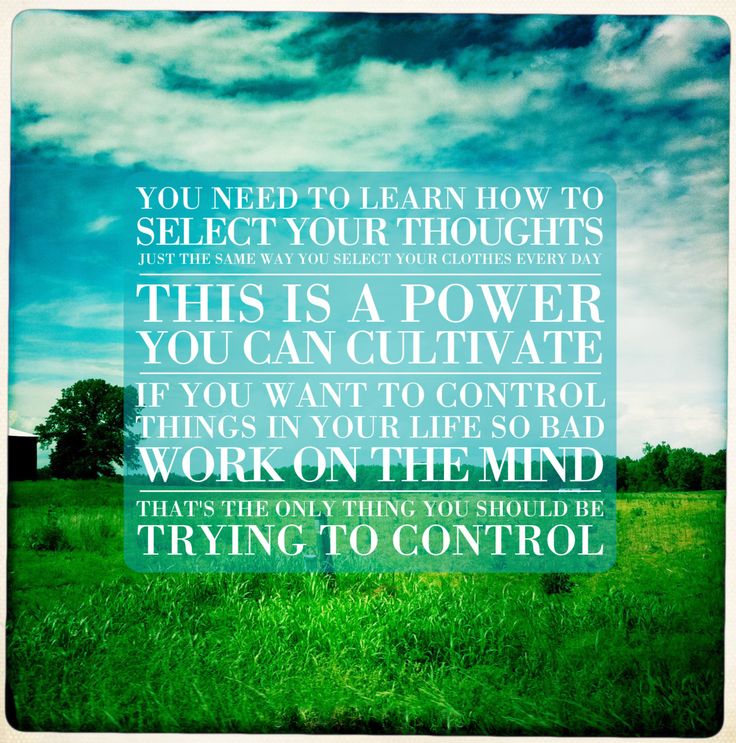
2- Better relationships. When you give up your need to control people around you, you start trusting them and accepting them better, which will bring you closer.
3- Less stress. When you stop trying to control everything in your life, you might experience more short-term anxiety, but over the long haul you’ll experience much less stress and anxiety.
4- More success. When you stop devoting your time and energy toward things you can’t control and direct them, instead, toward the things you can control, you become more focused.
You start experiencing increased confidence in your ability to handle things. You also become more able to recognize opportunities as they come your way.
When you focus on controlling circumstances and people in your life, you end up stressed out and not getting any results.
Instead devote your time and energy toward the things you can control, which oftentimes, are only your attitude and behavior.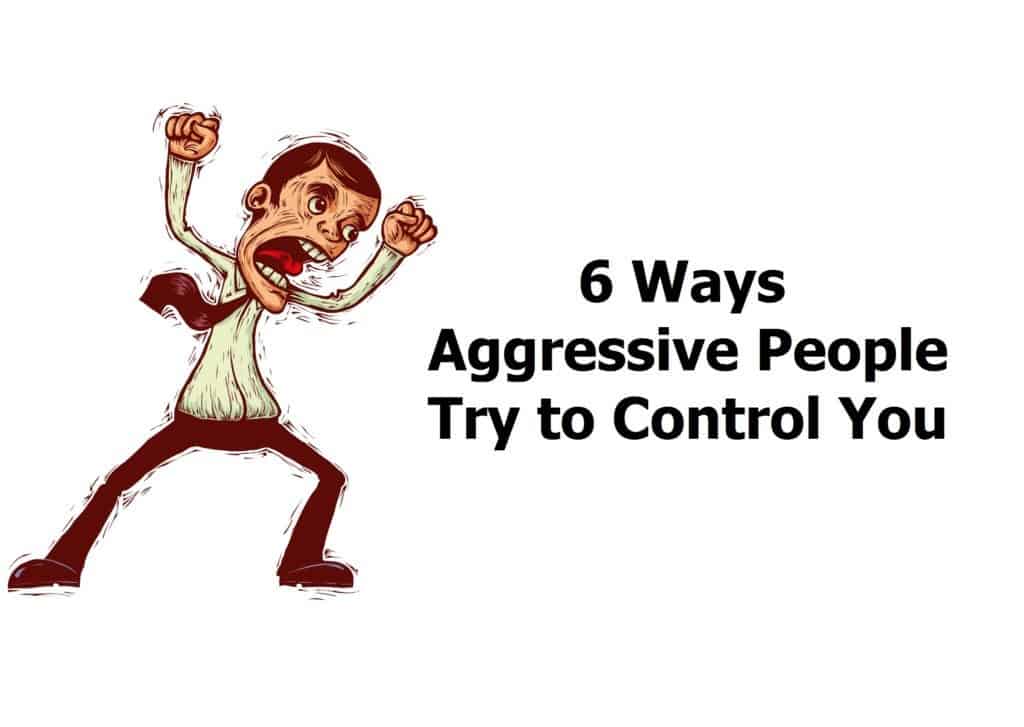
- Portions of this article were adapted from the book 13 Things Mentally Strong People Don’t Do, © 2013 by Amy Morin. All rights reserved.
- Controlling Behavior: 7 Signs To Look For (webmd.com)
- Controlling Behavior: Signs, Causes, And What To Do About It – Supportiv
- Do You Need to Control Everything?: 5 Causes of Controlling Behavior (psychcentral.com)
- Why Losing Control Can Make You Happier (berkeley.edu)
Affordable
Online Therapy: Do You Need Professional Help?Visit Online-Therapy.com Today
Talk to Someone Now
Can’t Afford Therapy?
Our Worksheets Will Help Support Your Mental Health
Access Our FREE Library Resources
How To Let Go Of The Need For Control, From A Psychologist
If you struggle to "let go" even just a little bit, here's how to understand the root cause behind these forces in your life and how to teach yourself to let go of the need for control.
The psychology of the need for control.
Coming from substantial personal and professional experience, I've found that a deep-seated need for control generally stems from a place of deep inner fear of the unknown. I've studied fear closely in my work and explore it thoroughly in my book Joy From Fear, and as far as fears go—no matter how strong, smart, or talented you are—the need to always be in control is a destructive fear that can take hold of your inner world. Whereas constructive fears alert us to an actual threat (such as an intruder or unfriendly dog) and actually keep us safe as we navigate life, destructive fears (such as those that warn us that "everything will not be OK if we aren't perfectly in control of X, Y, and Z") do nothing but erode our overall well-being.
Despite the truth that even the most tightly controlled life can be filled with anthills and hurricanes, our minds work overtime to convince us that the key to a safe, happy life lies in having certainty. Those who subscribe to this belief often over-regulate their internal and external worlds in the quest for safety. Sadly, a toxic cycle occurs when we believe we can—or should—be able to control all of the constantly moving targets that life presents. The more we strive for control, the greater our stress and anxiety grow; then, we respond by trying to control the uncontrollable, and the unproductive cycle continues.
Those who subscribe to this belief often over-regulate their internal and external worlds in the quest for safety. Sadly, a toxic cycle occurs when we believe we can—or should—be able to control all of the constantly moving targets that life presents. The more we strive for control, the greater our stress and anxiety grow; then, we respond by trying to control the uncontrollable, and the unproductive cycle continues.
Even when we dot every "i" and cross every "t," we too often wake up thinking, "If only I could control my diet, my work, my kids, my dog, my body, my age, my thoughts, my feelings, my living space, my relationship, my life, grocery prices, gas prices, climate change, politics, and natural disasters, life would be easy… I'd feel so much better."
We often don't have the courage to admit the truth: We have much less control over our lives than we want to believe; we simply can't control the thousands of variables that are part of being human. We are powerless over everything except our own feelings, thoughts, and actions.
But what if acceptance of this powerlessness is the key to healthy balance and empowerment? What if the secret to outwitting the drive for control is to mindfully let go of the illusion of control so that you can breathe?
How to let go of the need for control.
By embracing the 11 steps outlined below, you'll find yourself letting go of the I-need-to-be-in-control-of-everything mindset that has been ruling your world:
Advertisement
This ad is displayed using third party content and we do not control its accessibility features.
1.
Check your roots.
Pause to consider where your drive for control is rooted:
- Does it come from unresolved childhood wounds?
- Do you have an insecure attachment style?
- Did one or multiple of your caregivers foster a highly perfectionistic, critical, or controlled environment?
- Do you suffer from PTSD or another unaddressed issue that has you grasping for control?
Advertisement
This ad is displayed using third party content and we do not control its accessibility features.
If you discover that issues like these are at the root of your need for control, your awareness will help you make progress. Deep-rooted, unresolved issues often make life's vicissitudes more worrisome—and this can lead to an unconscious drive to generate more control over the present and the future.
2.
Pause to notice your feelings and thoughts.
When you're feeling the urge to over-control some aspect of your life (or another person's life), pause to notice the feelings that are at work. Are you feeling anxious, worried, or fearful? Is anger or sadness at work?
As you learn to nonjudgmentally attend to the feelings that often trigger an urge for control, you won't be at the mercy of your emotional world. For example, if you feel the urge to over-control a trip with friends, notice if you are motivated by anxiety that things might go awry or perhaps a fear of not pleasing everyone. Notice what you are thinking, such as, "If I don't make sure this trip is perfect, my friends won't think I'm on top of everything.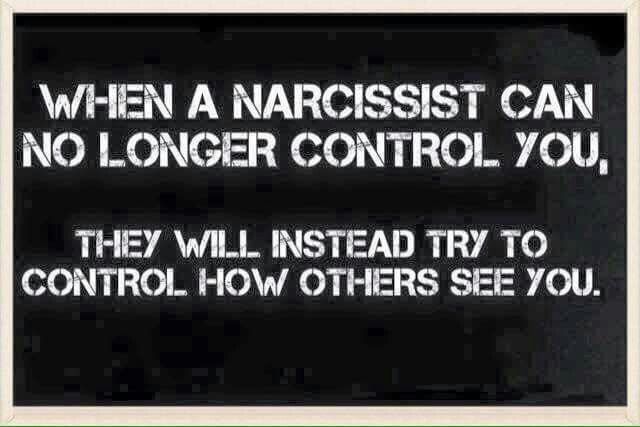 "
"
Advertisement
This ad is displayed using third party content and we do not control its accessibility features.
3.
Release your feelings and thoughts.
Once you recognize whatever feeling or feelings are at work, pause to consciously let go of the emotional burden. Take a deep breath, visualize releasing the fear, and replace the fear with a positive image such as a field of lavender, a calm sea, or a precious pet. Also release any negative thoughts; visualize them floating away in a balloon. Replace the negative thought with a positive mantra such as, "I'm going to release my need to try to make things perfect; I'd rather prepare in a balanced way and then go with the flow."
4.
Talk to yourself with humor and TLC.
When you find yourself stuck in a cycle of control, pause to talk to yourself in a kind, reassuring way. Remember, the drive for control often stems from a fear of the unknown and the desire to create certainty, so you'll want to give yourself a dose of TLC rather than shame or blame.
For example, if you find yourself trying to control your partner, simply pause and breathe. Then give yourself a kind comment such as, "Oh, these old habits are hard to shake, but I'm making progress. My partner's just doing things their own way… It's not harmful to me, so I'll just smile and let it be."
Advertisement
This ad is displayed using third party content and we do not control its accessibility features.
5.
Name your inner dictator.
You can add a touch of whimsy to your journey by naming your inner dictator. Whether you dub your inner control freak Maleficent, Golem, Scoundrel, or another meaningful moniker, you'll feel more objective—and more aware—when you notice that your inner dictator has taken hold inside your mind. When your inner dictator is pressuring you to take control in ways that are ultimately destructive to your well-being, simply say, "Hey, X, I see that you're here. You're not helping in this situation, so please exit the stage. "
"
The more you realize that your inner dictator is a small part of you—and a piece that you can control—the more you'll be able to create a healthy balance between constructive and destructive control.
6.
Notice when actual control is possible and when it is constructive.
To be sure, there are times when having control is actually positive and productive. Pause to notice and applaud yourself when your desire for control is actually helpful to the situation. For example, if you're stuck in a work situation where no one is taking charge and you need to step in, congratulate yourself for noticing that you have the skills and ability to manage the situation.
7.
Notice and let go when the pursuit of control is destructive.
As you become practiced at differentiating between constructive and destructive control, allow yourself to mindfully let go of the craving to control. For example, if you find that you're in a battle with your partner to "win" an argument so that you can control the situation, pause to let go. You can even say to your partner, "I'm sorry I was being controlling; I'd rather us find a win-win solution so that we're both satisfied with the outcome."
You can even say to your partner, "I'm sorry I was being controlling; I'd rather us find a win-win solution so that we're both satisfied with the outcome."
8.
Release the idea of "perfection."
In our perfectionist world, the drive to control is often deeply rooted in a deep-seated desire for perfection. Learn the art of differentiating between "good enough" and impossible perfection. When perfectionism is the force behind the quest for control, give yourself the gift of pulling back just a notch or two. Your mental and physical health—and your relationships —often benefit when you tone things down. Strive to show yourself true grace by noticing that "good enough" is often truly, fabulously great.
9.
Journal freely and frequently.
As you become accustomed to learning that you have power over your feelings, thoughts, and actions, you'll become more aware of what motivates you to strive for constant control in the external world. Pause to journal about what you notice and the changes you are making over time. The more you reflect on the positive results you are noticing, the more your positive changes will take hold.
Pause to journal about what you notice and the changes you are making over time. The more you reflect on the positive results you are noticing, the more your positive changes will take hold.
Take care to journal in a free, noncritical way that allows you to practice not being in control. To remind yourself to let go of control, make plenty of space for random thoughts, spelling errors, and wild imaginings.
10.
Use your control energy in positive ways.
If you find yourself upset by things you can't control—such as your partner's family or the Supreme Court—strive to not channel your anxiety into unconsciously controlling yourself or others in heavy-handed ways. Instead, channel your energy into positive activities, such as cleaning up litter in your local park, volunteering, or spearheading an upbeat and impactful political activity.
11.
Practice gratitude and acceptance.
As you create a more balanced relationship with your urges for control, you'll find yourself feeling freer and more empowered.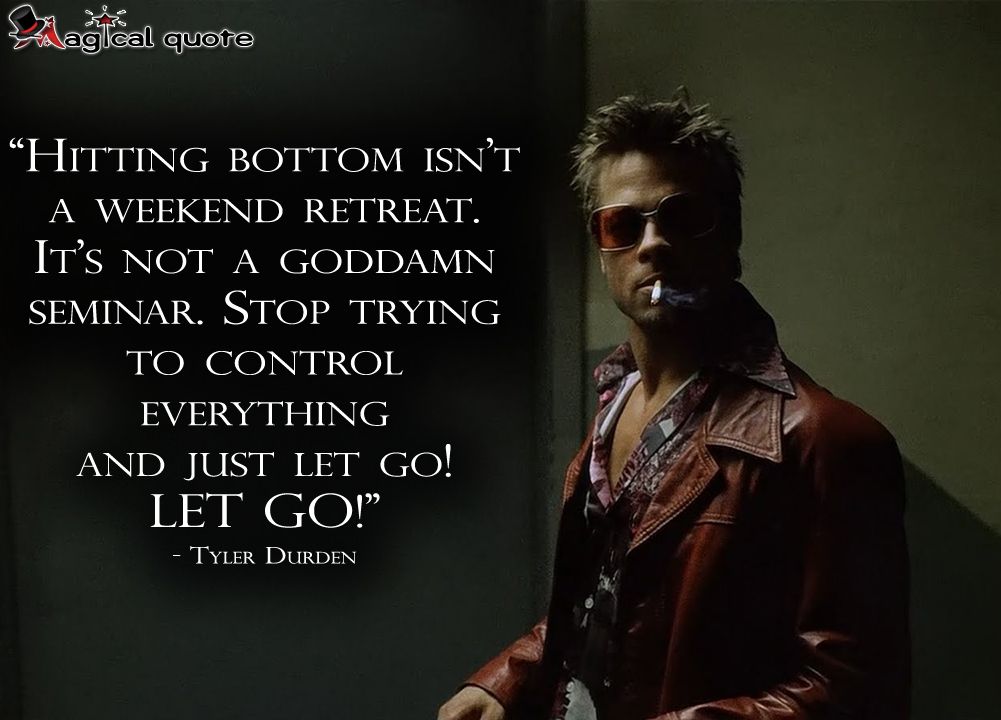 You can foster your progress by mindfully practicing gratitude for what you do have control over—your thoughts, feelings, and actions. And by practicing acceptance of what you can't control—such as the actions of others or the rate of inflation—you'll feel more positive and balanced.
You can foster your progress by mindfully practicing gratitude for what you do have control over—your thoughts, feelings, and actions. And by practicing acceptance of what you can't control—such as the actions of others or the rate of inflation—you'll feel more positive and balanced.
The takeaway.
When you let go of the myth that you'll be safe when you lead a tightly woven life and work the steps noted above, you'll slowly release your negative relationship with control. Over time, you'll find a sweet balance where you have a healthy relationship with control rather than control having power over you.
tried to control everything - Translation into English - examples Russian
Russian
Arabic German English Spanish French Hebrew Italian Japanese Dutch Polish Portuguese Romanian Russian Swedish Turkish Ukrainian Chinese
English
Synonyms Arabic German English Spanish French Hebrew Italian Japanese Dutch Polish Portuguese Romanian Russian Swedish Turkish Ukrainian Chinese Ukrainian
These examples may contain rude words based on your search.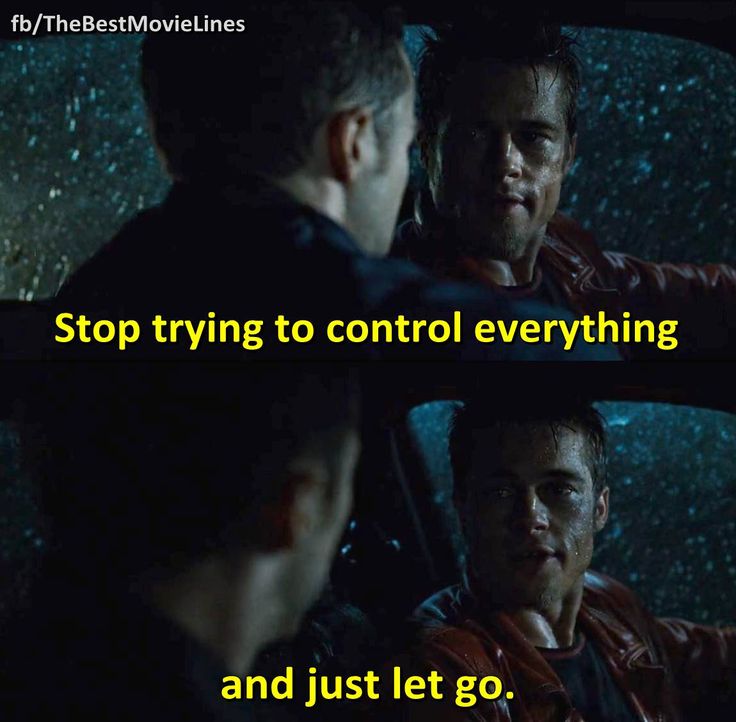
These examples may contain colloquial words based on your search.
All my life you tried to control everything , and if you couldn't control something, you just didn't take it.
My whole life, you have tried to control everything , and if you didn't get to control something, then you just didn't deal with it.
It seems to me that whoever is on the other end of the line is tried to control everything .
I think whoever was on the other end of that earpiece was in the process of trying to exercise control .
He tried to control everything .
He was trying to control everything .
Other results
He, too, tried to control his workforce.
He sought to control his work force, too.
Like religion, Marxism attempted to control the daily lives of its adherents.
Like religion, Marxism tried to control the daily life of its adherents.
I was trying to control a flawed and incapable of emotions person.
I'm just drawn to controlling But damaged and emotionally unavailable men.
You tried to control me like always.
You were trying to control me, like you always have.
Let him "initially tried to control democratization and dose publicity."
So he " tried to control democratization and measure out glasnost in small doses at first".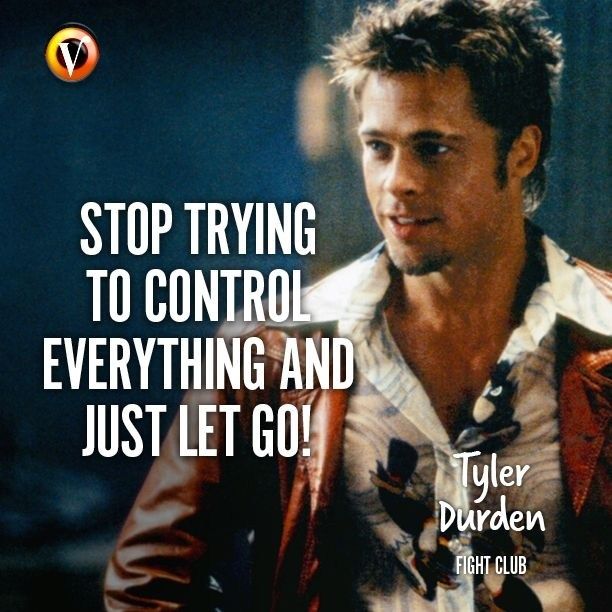
It's more correct to say I tried to control it .
And the thing is, I've tried to control it.
After the anchor broke, the crew of tried to control the vessel, but they failed.
After break of an anchor the crew tried to control the vessel, but at them it hasn't turned out.
I tried to control inner sensations and think for myself.
Now I have been able to control myself and think internally.
Therefore, all his life he tried to control his weight .
Throughout his entire life he has struggled with his weight.
"I had a crazy boyfriend who tried to control me from afar.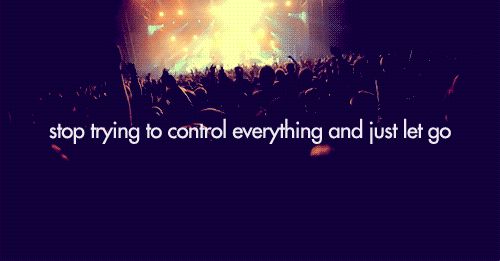
I had a crazy boyfriend who attempted to control me from afar.
The evil illusionist tried to control 's psyche when she was only Jean Grey.
The evil magician tried to control her mind when she was only Jean Grey.
Second, he is tried to control 's every move like an owner.
Second, he tried to control her every move with a possessive grip.
There is no doubt that China tried to control the Internet.
China is trying to control the internet.
In 1767, Zahir's son Said tried to control Hettin and nearby Turan, but was defeated by his father.
In 1767, Zahir's son Sa'id sought to control Hittin and nearby Tur'an, but was defeated by his father.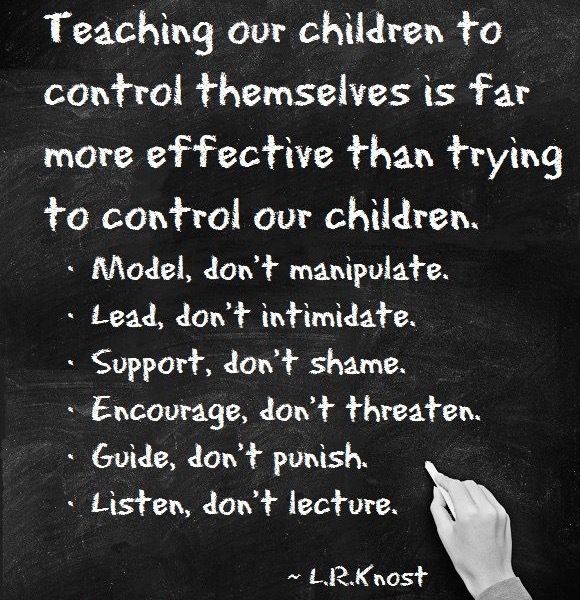
He tried to control you through fear and hatred.
He tried to control you through fear and hate.
I never tried to control Natalie's .
I never try to control Natalie.
Scott... he never tried to control me.
Scott... he never tried to control me.
Possibly inappropriate content
Examples are used only to help you translate the word or expression searched in various contexts. They are not selected or validated by us and can contain inappropriate terms or ideas. Please report examples to be edited or not to be displayed. Rude or colloquial translations are usually marked in red or orange.
Register to see more examples It's simple and it's free
Register Connect
Trying to control life with the mind, we lose reality
Usually we spend much more time thinking than necessary - fifty or even a hundred times more. This creates background stress by default and creates a feeling of being busy.
This creates background stress by default and creates a feeling of being busy.
Create a merry-go-round
We can no longer enjoy mundane activities like getting dressed or walking in the parking lot.
The feeling of the present moment remains in the mind as something valuable, but at the same time something that can be put off until later.
A couple of weeks ago, on a Sunday, I went to a friend's house to watch the Oscars. I decided not to mentally talk to myself all the way there. Lately, I've been doing a lot of these micro-experiments, putting myself in a state of total presence in the here and now for very short periods of time.
Can I, for example, keep your mind focused on what happens while washing dishes? At the end of each exercise, I return to my normal state of distracted stupor if desired.
I challenged myself to during the 30 minutes it took to drive to my friend's house (including going to the store) to keep my attention focused only on the events of the real world around me and not allow myself to get involved in mental dialogues.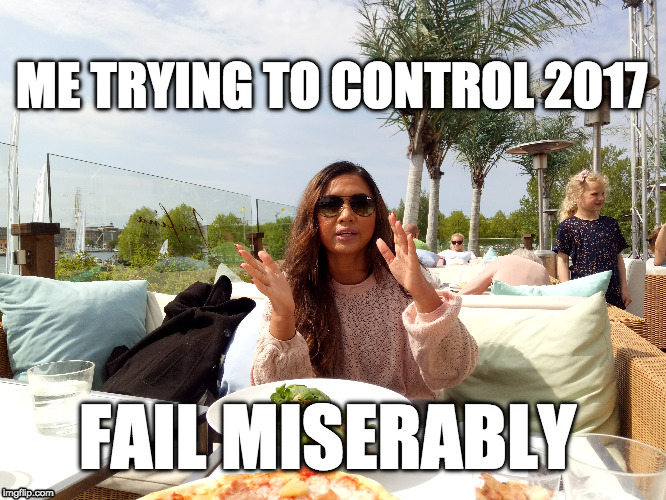 That is, I decided to put aside the words for a while and observe everything else.
That is, I decided to put aside the words for a while and observe everything else.
It worked. The conversational part of my brain is almost silent, and for the 600th time I realized how beautiful in essence and full of harmony - when I manage to take a break and not talk or think about it all the time.
Ideally, I would spend my whole life in this state : when you just watch the course of things, and nothing that happens is of no importance. Everything in itself is very beautiful and curious, and if trouble is brewing, you are already in the best state of mind to deal with it. There is a specific feeling that you do not need to be in any other place - and you realize how rare it is.
The most prominent property of this state of presence is the peace that extends to the surrounding world. You can still hear the noises of the city and the motors of the cars, but the loudest irritant has died down - that is, the usual mental comments.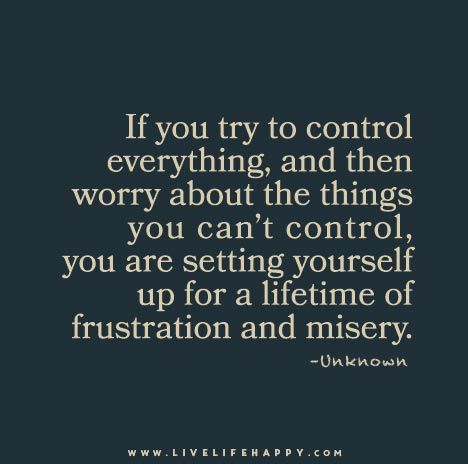
I've been in this state before, but it always came on more spontaneously. But after the recent experience described, I realized something quite obvious: the more you practice, the more often it will happen.
I know that many people experiment with purposefully living in the present moment. Perhaps you, like me, have gone on a spiritual quest for yourself, experienced an intense presence in the "here and now" and discovered the incredible benefits of this state.
You may have read The Power of Now or Wherever You Go There You Are, had an epiphany of how much value there is in this particular moment, and felt how everything changes after that.
Only this state for some reason cannot be kept. The feeling of the present moment lingers in the mind as something valuable, but also something that can be put off until later, just as the intention to get in shape or learn to play the guitar is put off.
The experience described succeeded because I made a conscious effort to feel the moment and stay in it. That is, I agreed not to waste my energy on verbal interference, covert or overt, until there was a good reason for it. And it has had a significant impact on my experience. So why not agree to do this all the time?
That is, I agreed not to waste my energy on verbal interference, covert or overt, until there was a good reason for it. And it has had a significant impact on my experience. So why not agree to do this all the time?
Because words protect us from parts of reality that we don't like. You are not obliged to emotionally open up towards an object that you have already begun to analyze, give it definitions or evaluations. To remove words from a particular moment, you must accept the fact that you will accept all the details of your experience without judging or evaluating them. Most of us have not developed the appropriate skills.
And we succumb to the usual train of thought: about how things should ideally be , or how things would have been when another political party was in power, or what the guy should have answered, or how the bus fare had risen so much - in a matter of seconds, the present turns into nothing more than a pale background for our thoughts.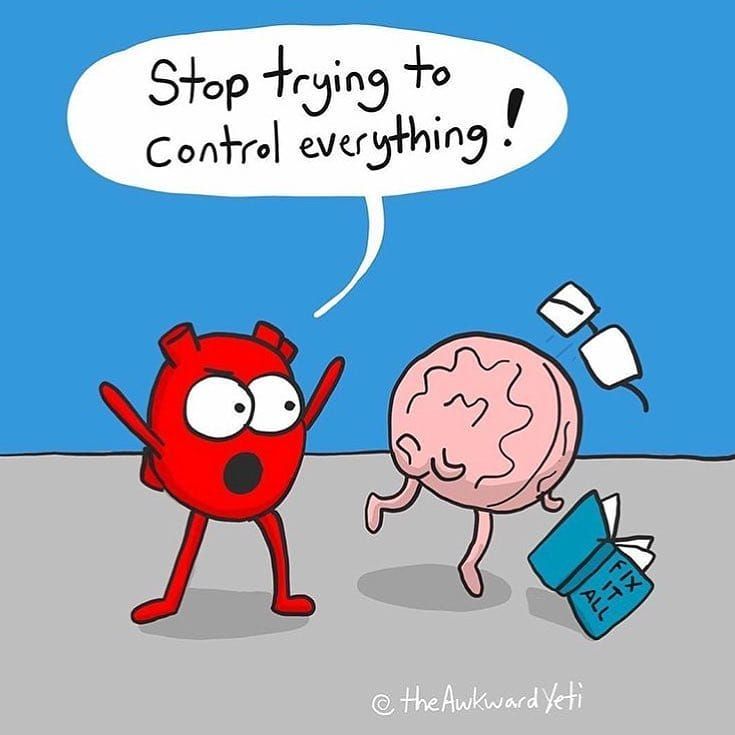 This is a bad habit and we practice it all the time.
This is a bad habit and we practice it all the time.
Such trifles make up a large part (99%+) of a person's life. They can be very tangible and pleasurable if the mind stops talking all the time. Imagine how life becomes at 90 times nicer! We miss out on this pleasure by allowing our attention to default to internal dialogue.
Stress does not come to us from the outside world - the world is much calmer than it seems. It becomes obvious as soon as you stop thinking.
The thinking brain is a constantly running chainsaw that mistakes any object for a tree. Just give him a reason to increase the speed, and he will go to crumble. The brain is designed to solve problems - so it wants any object to be a problem.
In most moments of life, we do not need to do anything - just observe is enough. There is no need to analyze or calculate - but the mind still wants to do it. The thinking brain is a tool, and we must learn to put it aside when necessary (that is, almost always).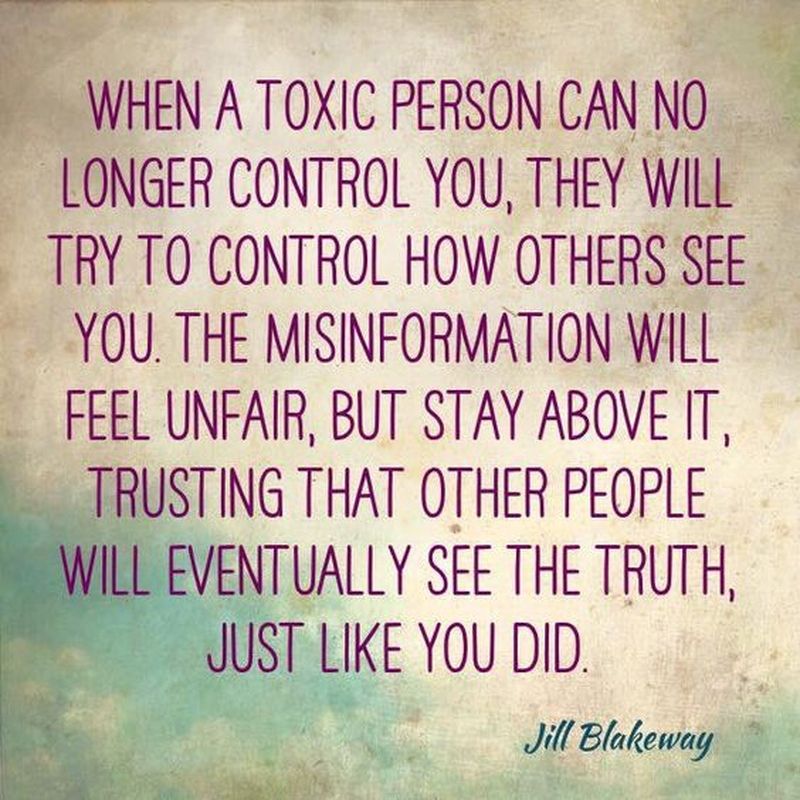
We stand to gain enormously if we simply think less, which means putting aside an already overused tool.
A complete list of skills for "living in the present" would be too long to fit in one article. However, we have a very clear starting point: the path to the present moment begins with attention to concrete, physical details. Your body, your clothes, the air, background sounds, the surface you are standing on.
Physical objects exist only in the present. Focus your attention on something physical - that is, what is actually happening. The mind begins to chatter as soon as it has a reason to do so - and it appears at almost any moment, except in the following situations:
a) You are doing something that requires attention to physical objects.
That's why people like sports with a risk to their lives - it forces you to return to reality (otherwise you will die). For the same reason, we watch movies: we sit motionless in front of a multi-meter screen, the rest of the situation is drowning in darkness, a well-arranged story captures our imagination, and the speakers roar at full capacity.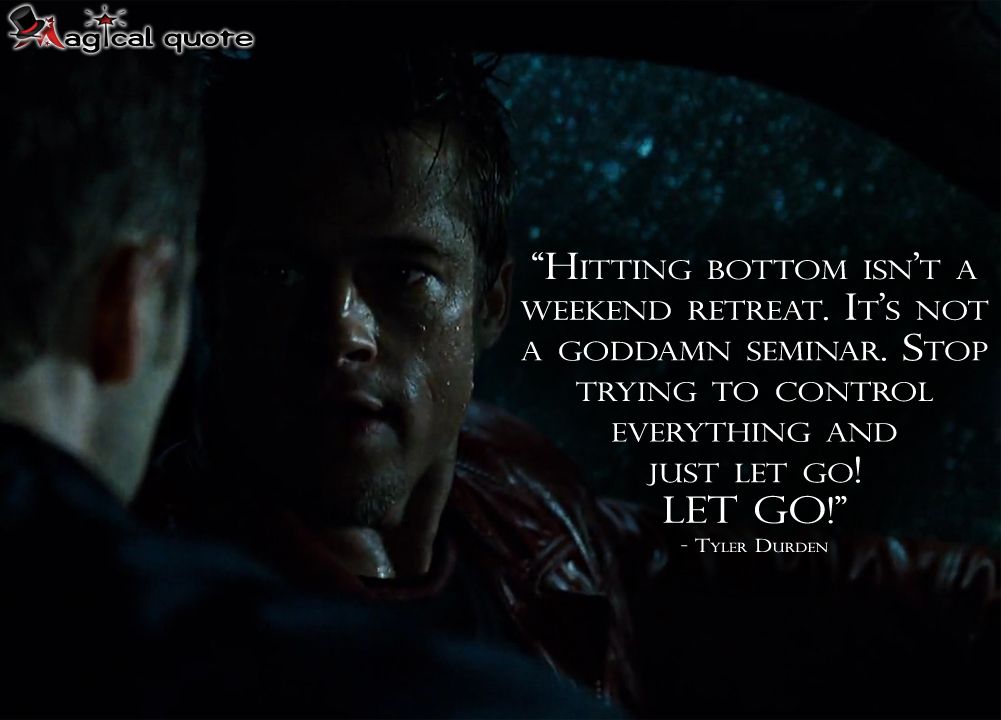
b) You develop habits of bringing your mind back to something physical as soon as they noticed that he started working on something abstract.
He can only work on his thoughts, and everything else is part of the present moment.
Your thinking brain has magical powers to divert attention from the real . He can describe circles around you. But it won't be able to stop you from practicing directing your attention to what you really want to direct it to—that is, objects in the real world. Paying attention to the present moment is a fairly simple skill that can be learned and will become a reflex later on. The easiest way is not to try to do this all the time, but to choose a certain part of the daily routine to practice.
Set realistic goals and progress gradually . For example, I started by washing dishes. Then I added walking and putting on clothes to the short list of activities - doing this, I focus on the present moment.